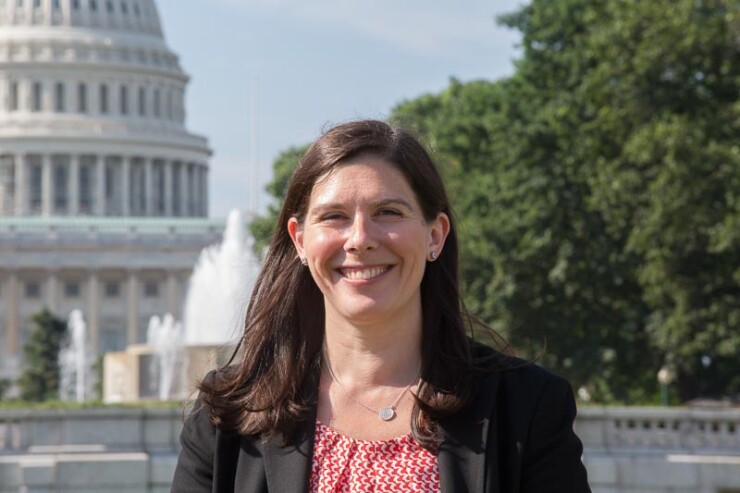
Transportation lobbyists and municipal market advocates are pushing for Congress to lift the cap on the amount of tax-exempt private activity bonds that can be floated for transportation projects as part of the upcoming surface transportation bill.
"There's a definite desire within Congress and the stakeholder community to raise the limit on PABs — I don't know what the ultimate number will be," Susan Howard, director of policy and government relations at the American Association of State Highway and Transportation Officials, said Monday at The Bond Buyer's Infrastructure conference in Boston.
"Everyone recognizes that the threshold is not meeting things where they are, so we would certainly anticipate a big push to have it raised."
The cap on PABs was doubled to $30 billion from $15 billion under the current surface transportation law, the Infrastructure Investment and Jobs Act. In the four years since, nearly $29 billion of that has been allocated, said Morteza Farajian, director of the Department of Transportation's Build America Bureau, which oversees the PABs program.
When the PABs program for surface transportation projects was launched, the goal was "to attract private investment in transportation projects," Farajian said. "We have achieved that goal a couple years ahead of when it was supposed to be achieved," he said. "We have $29 billion of private investment through this program two years ahead of schedule. We ran out because the program has been very successful."
Public-private partnership advocates also said lifting the PABs cap is one of their most important priorities for Congress next year. PABs serve as a crucial part of P3 financing.
"Let's double [the cap] at least," said Marshall Macomber, chief of the Office of Innovative Finance and Delivery at the Maryland Department of Transportation. "Let's continue to lean into" the tool, Macomber said. "It brings a lot of efficiency to the market."
Congress has already started to hold hearings on the next transportation package, which is due by October 2026, when the IIJA expires. Shoring up the failing Highway Trust Fund is sure to be a topic of debate, panelists said.
The idea of a national electric vehicle fee
"To me it is a little bit of a barometer of beginning to dip our toes into another kind of mechanism to have all users pay something into the Highway Trust Fund," she said. "That's a precursor to what we may see moving forward."
Howard said she expects to see a "moderate bill," bipartisan in nature, that will be more focused on formula funds than competitive grant programs. "How we do more with less" may emerge as one of its themes, she said.
"Funding is the biggest challenge, and second is the scope of the bill — what its theme or legacy will be," Howard said. It will not be like the massive IIJA program, she predicted. "It will probably be much more narrowly focused on surface transportation, but the parameters are still being crafted."





